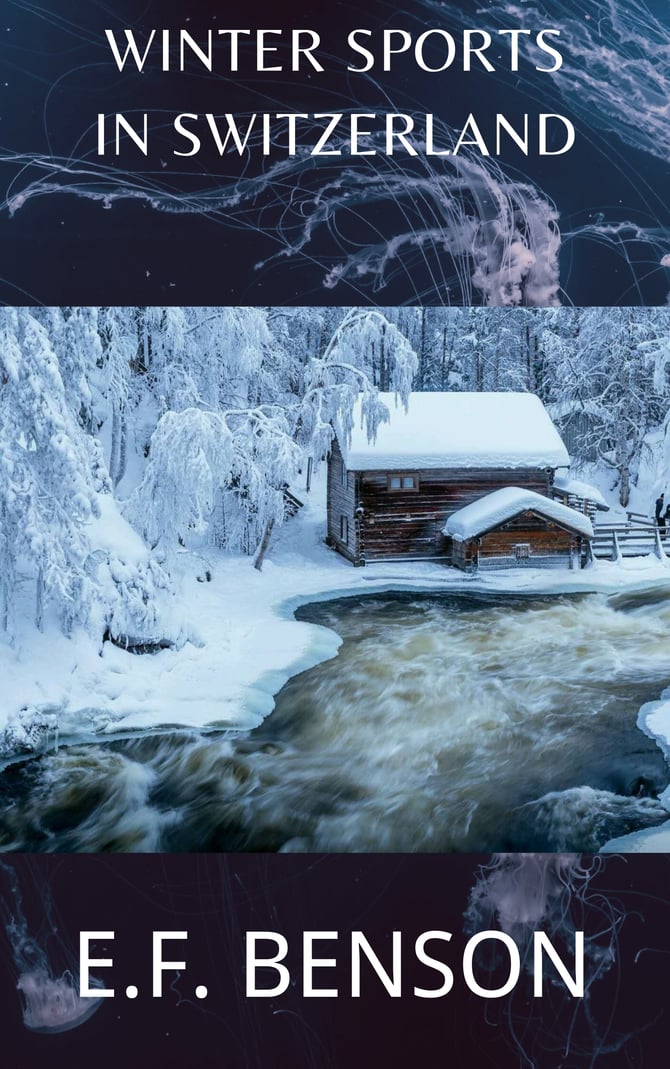
WINTER SPORTS IN SWITZERLAND
By
qingsongzhi
There is an amazingly silly proverb which quite mistakenly tells us that “seeing is believing.” The most ordinary conjurer at a village entertainment will prove the falsity of this saying. For who has not seen one of these plausible mountebanks put a watch into a top-hat, and, after clearly smashing it into a thousand pieces with a pestle, stir up the disintegrated fragments with a spoon and produce an omelette? Or who is so unacquainted with the affairs of the village schoolroom at Christmas as not to have seen a solid billiard-ball or a lively canary squeezed out of the side of a friend’s head? Such phenomena are by no means rare, and occur periodically all over England. The observer’s eyes have told him that he has seen such things, and the verb “to see” is merely a compendious expression to indicate that on the evidence of your eyes such or such a phenomenon has actually occurred. But no one believes that the disintegrated watch has become an omelette though ocular evidence—seeing—insists that it has. It was a conjuring trick. And this leads me to the consideration of the phenomena on which this whole book is based.
For High Alpine resorts in winter are a conjuring trick of a{2} glorious and luminous kind. Our commonsense, based on experience, tells us that ice is cold, but is melted by heat; and that snow is wet; and that unless you put on a greatcoat when the thermometer registers frost, you will feel chilly; and that if you frequently fall down in the snow you will be wet through, and if you do not change your clothes when you return home you will catch a cold. All these things are quite obvious, and he who does not grant them as premises to whatever conclusion we may happen to base on them, is clearly not to be argued with, but soothed and comforted like a child or taken care of like a lunatic. But High Alpine winter resorts give, apparently, ocular disproof of all these obvious statements, and those who go out to these delectable altitudes in favourable seasons see (which is ocular evidence) every day and all day the exact opposite of these primitively simple prepositions regularly and continually taking place. They sit in the sun, when they are tired of skating, and see that though a torrid luminary beats down on the frozen surface, burning and browning the faces of their friends, the ice remains perfectly dry and unmelted; they trudge through snow, and find that they are not wet; they see the thermometer marking anything up or down to thirty degrees of frost, and go out coatless and very likely hatless, and are conscious only of an agreeable and bracing warmth; they go ski-ing and all day are smothered in snow, and yet return dry and warm and comfortable to their hotels, and do not catch any cold whatever. Shakespeare once made an allusion of some kind (I cannot look all through his plays to find it) about hot ice, meaning to employ a nonsensical expression. But it is the most striking testimonial to the magni{3}ficence of his brain that all he ever wrote meant something, although, as in this instance, he designed it not to. For without doubt he was alluding to what appears to occur at St. Moritz or Mürren...
For High Alpine resorts in winter are a conjuring trick of a{2} glorious and luminous kind. Our commonsense, based on experience, tells us that ice is cold, but is melted by heat; and that snow is wet; and that unless you put on a greatcoat when the thermometer registers frost, you will feel chilly; and that if you frequently fall down in the snow you will be wet through, and if you do not change your clothes when you return home you will catch a cold. All these things are quite obvious, and he who does not grant them as premises to whatever conclusion we may happen to base on them, is clearly not to be argued with, but soothed and comforted like a child or taken care of like a lunatic. But High Alpine winter resorts give, apparently, ocular disproof of all these obvious statements, and those who go out to these delectable altitudes in favourable seasons see (which is ocular evidence) every day and all day the exact opposite of these primitively simple prepositions regularly and continually taking place. They sit in the sun, when they are tired of skating, and see that though a torrid luminary beats down on the frozen surface, burning and browning the faces of their friends, the ice remains perfectly dry and unmelted; they trudge through snow, and find that they are not wet; they see the thermometer marking anything up or down to thirty degrees of frost, and go out coatless and very likely hatless, and are conscious only of an agreeable and bracing warmth; they go ski-ing and all day are smothered in snow, and yet return dry and warm and comfortable to their hotels, and do not catch any cold whatever. Shakespeare once made an allusion of some kind (I cannot look all through his plays to find it) about hot ice, meaning to employ a nonsensical expression. But it is the most striking testimonial to the magni{3}ficence of his brain that all he ever wrote meant something, although, as in this instance, he designed it not to. For without doubt he was alluding to what appears to occur at St. Moritz or Mürren...

